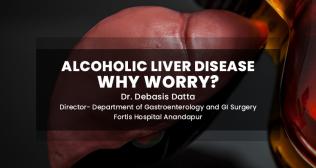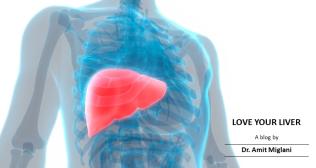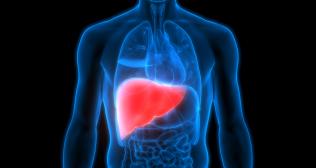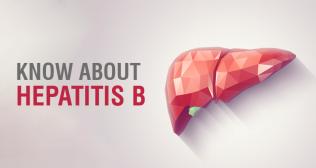
Decoding the Gut-Brain Axis: How Inflammatory Bowel Disease (IBD) Affects Mental Health
Living with a chronic illness is a journey that extends far beyond the physical symptoms. For those with Inflammatory Bowel Disease (IBD), the daily reality of pain, fatigue, and digestive distress is only one part of the story. There is a powerful and intricate connection between our gut and our brain, a constant two-way communication system known as the gut-brain axis. When the gut is in a state of chronic inflammation, as it is in IBD, the messages sent to the brain can have a profound impact on mental and emotional well-being.
The experience of IBD is not just a physical battle; it is an emotional one as well. The high rates of anxiety and depression among people with IBD are not a sign of weakness but a direct physiological consequence of this complex interplay. Understanding this connection is essential for a truly holistic approach to care.
What Is Inflammatory Bowel Disease?
It is important to first clarify what is inflammatory bowel disease. IBD is an umbrella term for two chronic conditions characterized by inflammation of the gastrointestinal (GI) tract: Crohn's disease and ulcerative colitis. It is an autoimmune disease, meaning the body's own immune system mistakenly attacks the digestive tract.
The Two Main Types of IBD
- Crohn's Disease: This type can affect any part of the GI tract, from the mouth to the anus, though it most commonly affects the end of the small intestine and the beginning of the colon. The inflammation can penetrate deep into the layers of the bowel wall.
- Ulcerative Colitis: This condition is limited to the large intestine (the colon and rectum). The inflammation affects only the innermost lining of the colon and is continuous, starting from the rectum and extending upwards.
The Physical Burden: Inflammatory Bowel Disease Symptoms
The physical inflammatory bowel disease symptoms can be relentless and unpredictable, significantly impacting a person's quality of life. During a flare-up, a person may experience:
- Persistent diarrhea, which may contain blood or mucus
- Abdominal pain, cramping, and bloating
- An urgent and frequent need to have a bowel movement
- A feeling of incomplete evacuation
- Fatigue and weight loss
- Rectal bleeding
The unpredictable nature of these symptoms can create a constant state of anxiety, making it difficult to plan social outings, work, or even leave the house.
The Complex Inflammatory Bowel Disease Causes
The exact inflammatory bowel disease causes are not fully known, but it is believed to be the result of a complex interaction between multiple factors.
- Genetics: A person's genetic makeup can make them more susceptible to developing IBD.
- Immune System Response: The core of the disease is a dysfunctional immune response. The immune system overreacts to normal bacteria in the gut, triggering chronic inflammation.
- Environmental Factors: Factors such as diet, smoking, and the use of certain medications are thought to play a role in triggering the disease in genetically predisposed individuals.
The Gut-Brain Axis in IBD
The gut is often called the "second brain" for good reason. It contains millions of neurons and is in constant communication with the brain via the vagus nerve. In a person with IBD, this communication highway is disrupted.
- From Gut to Brain: The chronic inflammation in the gut sends a continuous stream of stress signals to the brain. These signals can alter the production of neurotransmitters like serotonin (a key regulator of mood), leading to an increased risk of anxiety and depression.
- From Brain to Gut: The connection works both ways. Psychological stress, anxiety, and depression can directly impact the gut. Stress can increase intestinal permeability (sometimes called "leaky gut"), alter gut motility, and even worsen the inflammatory response, potentially triggering or prolonging an IBD flare-up. This creates a vicious cycle where the physical symptoms worsen the mental health, and the poor mental health worsens the physical symptoms.
A Holistic Inflammatory Bowel Disease Treatment Plan
Effective inflammatory bowel disease treatment requires a comprehensive approach that addresses both the gut inflammation and the associated mental health challenges.
Medical Treatment for the Gut
The primary goal is to reduce the inflammation and achieve remission. This is done with a range of medications, including anti-inflammatory drugs, immune system suppressors, and biologic therapies that target specific inflammatory pathways.
The Role of an Inflammatory Bowel Disease Diet
While diet does not cause IBD, it plays a crucial role in managing symptoms. A personalized inflammatory bowel disease diet is key. During a flare, a low-fiber, low-residue diet may be recommended to reduce irritation. In the long term, identifying and avoiding individual trigger foods can help maintain remission. Working with a registered dietitian who specializes in IBD is essential.
Supporting Mental Health
Addressing the psychological impact of IBD is not an optional extra; it is a core part of the treatment plan.
- Psychotherapy: Cognitive Behavioral Therapy (CBT) can be particularly effective in helping patients develop coping strategies for the stress and anxiety associated with living with a chronic illness.
- Mindfulness and Stress Reduction: Practices like meditation, deep breathing exercises, and yoga can help calm the nervous system and have been shown to have a positive impact on both mood and gut symptoms.
- Support Groups: Connecting with other people who are living with IBD can be incredibly validating and can reduce feelings of isolation.
A Unified Approach to Wellness
Living with Inflammatory Bowel Disease is a complex journey that requires more than just managing physical symptoms. The undeniable link between the gut and the brain means that emotional and mental health must be treated as a priority, not an afterthought.
By embracing a holistic care model that integrates medical, dietary, and psychological support, individuals can break the cycle of inflammation and distress. This comprehensive approach empowers patients to manage their condition more effectively and reclaim their overall quality of life.
Frequently Asked Questions
1. Is IBD the same as Irritable Bowel Syndrome (IBS)?
Ans. No. While they share some symptoms, IBD is an autoimmune disease that causes physical inflammation and damage to the bowel. IBS is a functional disorder, meaning the gut does not function correctly, but there is no visible inflammation or damage.
2. Can stress cause IBD?
Ans. Stress does not cause IBD. However, for someone who already has the disease, stress can be a major trigger for a flare-up of symptoms.
3. Can IBD be cured?
Ans. Currently, there is no cure for IBD. However, with modern treatments, it is possible to achieve long-term remission, where the disease is inactive and symptoms are absent.
4. What is the most important part of an IBD diet?
Ans. The most important aspect is personalization. There is no one-size-fits-all diet. Keeping a food and symptom journal to identify your personal trigger foods is a key strategy.
5. How do I start a conversation with my doctor about my mental health?
Ans. Be direct. You can say something like, "I've been feeling very anxious and overwhelmed since my diagnosis, and I think it's affecting my symptoms. Can we talk about support options?"



















